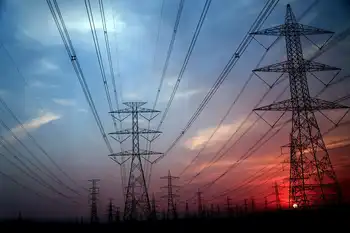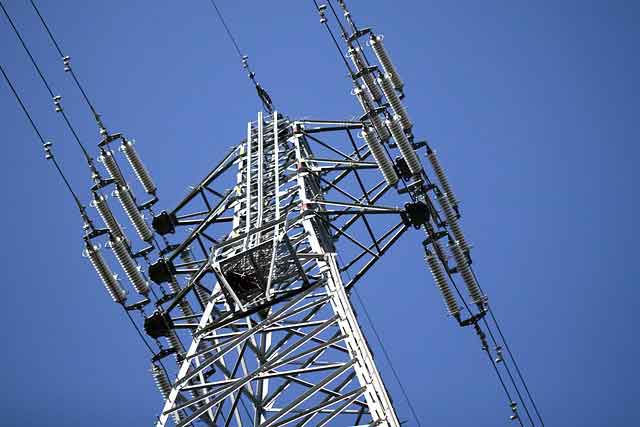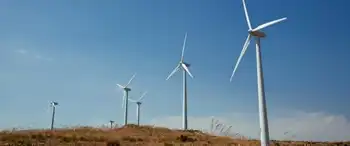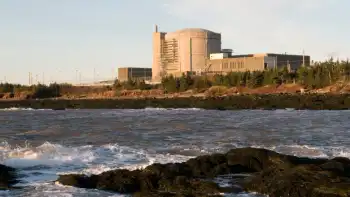Thirty New Power Plants Proposed for Virginia
- RICHMOND, Va.--Thirty new power plants are proposed for Virginia, an unprecedented surge that would overcome any future California-like energy crisis.
But health and environmental advocates warn that building so many plants at the same time could spur air pollution and spread more hazy smog over national parks and forests.
On Wednesday, these advocates urged state regulators to slow down the 30 projects or enact a moratorium on new licenses so potential side effects can be fully studied.
States such as Kentucky, Tennessee and Georgia have called time-outs in the wake of similar spikes in power plant applications, said Dan Holmes of the Piedmont Environmental Council.
"Why can't we do the same?" Holmes asked. "What's the hurry?"
The Virginia Air Pollution Control Board did not take any action Wednesday, but state environmental officials who advise the board said they already have studied all pertinent angles to the trend and could find no significant risk.
"Air quality in Virginia is generally pretty good, and we'd expect it to stay that way," said John Daniel Jr., state director of air programs for the Virginia Department of Environmental Quality.
Daniel said his staff has reviewed the cumulative impacts of eight power plants likely to be built, including one on the Eastern Shore in Accomack County. The results: negligible smog increases in Hampton Roads and Richmond, and mild increases in a few spots around the state.
The dispute is the latest fallout from the continuing deregulation of the electric power industry in Virginia.
Since 1998, about the time the state declared its intention to open up energy markets, 30 companies and utilities have asked for state approval to build new plants -- including 18 applications this year alone. If all the plants were constructed, Virginia would double its number of power generators, from 30 to 60, and double its potential yearly output, from 20,000 megawatts to 40,000 megawatts, according to an analysis by the Piedmont Environmental Council.
The council argues that, at its peak last year, Dominion Virginia Power needed 16,000 megawatts to serve its customers. Activists say the wave of new plants is intended to supply energy to Northeast states, where most utilities face stiff environmental regulations because they violate federal air standards.
Only Northern Virginia exceeds standards under the national Clean Air Act.
Much as Virginia accepts tons of household trash from many Northeast states, "now we'll be holding their air pollution, too," Holmes said. An advisory group composed of utility and industry representatives tried to debunk such criticism as emotional rhetoric.
It released a report Wednesday that found that:
Twenty-eight of the 30 new plants would run on cleaner-burning natural gas, not coal or fuel oil.
Other federal requirements will reduce harmful emissions from older, dirtier power plants by as much as 65 percent by 2004.
Because of market conditions and cooling-water shortages, only a handful of the proposed new plants will actually be built.
The detailed study and computer modeling that environmentalists want would cost too much and be too unreliable.
"Basically, what's already on the books, and what's already been done, is going to bring us into compliance" with federal clean-air rules, said Sheryl Raulston, an environmental manager for International Paper in Franklin, who presented the industry report.
Christi Gordon, an air specialist at Shenandoah National Park, said smog already is harming the natural beauty and integrity of the park.
Trout streams in the George Washington National Forest are suffering from acid rain, said Alice Carlton of the U.S. Forest Service, and poor visibility because of smog at the James River Face Wilderness Area is "among the worst in the nation."
Gordon and Carlton urged the state to install more air monitors and consider the new plants collectively, not individually.
"It's time the state of Virginia got serious about its air pollution," said Glen Besa, director of the Virginia chapter of the Sierra Club.
Daniel, the state air director, said concerns about air quality at national parks and sanctuaries are legitimate. But given new controls mandated by the U.S. Environmental Protection Agency, he said, they "likely will be taken care of in time."
Related News

Alberta's electricity rebate program extended until December
CALGARY - Alberta's electricity rebate program has been extended by three months and will now be in effect until the end of December, the government said.
The program was originally to provide more than 1.9 million homes, farms and small businesses with $50 monthly credits on their electricity bills for July, August and September. It will now also cover the final three months of 2022.
Those eligible for the rebate could receive up to $300 in credits until the end of December.
The program, designed to provide relief to Albertans hit hard by high utility bills, will cost the Alberta government $600 million.
Albertans…




